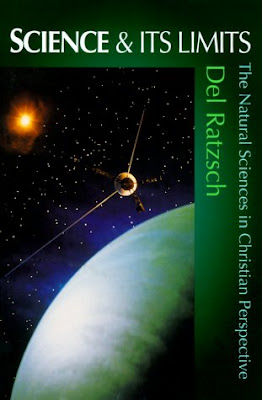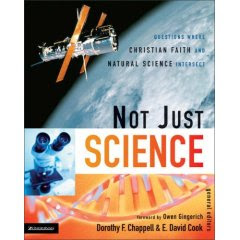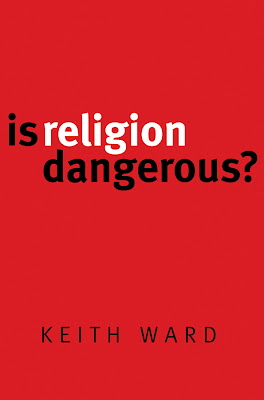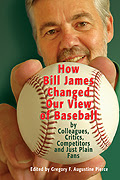
IÕve tried, on occasion, to get folks to post comments on my BookNotes blog, and rarely have many readers chimed in. (I’ve heard that it is a little tedious to get a blogger account, but with tenacity, it does finally work, and then you are free to post. Just make up your own password, you know.) Even my invitation to argue about your favorite, or not so favorite, Frederick Buechner books failed. Denise, Godblessher, wrote a lovely post and IÕd suggest you skim back and hear from a good reader and good writer (sheÕll be famous some day) her quick comments on Rev. B.
And so, I must admit, I was a little surprised at the frenzy of posts—now past 35 (many from me in response)—responding to my recommendation of some books on Intelligent Design. A few complimented me on what they thought was a balanced and honest account of the ambiguity I often feel when out selling books, which was the important first part of my last entry. We are so happy to partner with many different kind of churches and many different kind of Christian (or non-Christian) groups, and, on a good day, feel at home and happy to be so wildly ecumenical. Sometimes, though, I feel like that motherless child in the old black spiritual. No real home, not fitting in fully—certainly not with those that presume a giant divide between a caricatured Ã’liberalÓ and Ã’conservativeÓ position (in politics, theology or cultural engagement) as so many do. And so, I shared some joy at the good graces shown by friends at a nearby church who brought in the prominent evolutionist theologian, Dr. John Haught. As I noted, his reputation as a good presenter and fine Christian gentleman was exceeded, and we thoroughly enjoyed our time with him. And we made a little money selling books, which, for those of you who know our work and care about Hearts & Minds surely know, that is part of the mix of all this, too. This is how we make our living, such as it is.
But yet. Haught short-sheeted the ID folks in my opinion, so I noted a couple of books that interested folks ought to know about. The rare study of Judge JonesÕs legal ruling in the Dover case. A history of the ID debate from a pro-ID view, that I think would be a great introduction. I noted that the book of rebuttals to the various charges against ID written by William Dembski is now out in paperback. Stepping back, then, from the ID debate, I told of what I think is my favorite book on a Christian view of science, Science & Grace: God’s Reign in the Natural Sciences written by Tim Morris & Don Petcher (Crossway; $17.99.) And, of course, I alluded to Kuhn, Polanyi, Newbegin and Dooyeweerd, who help us get at what Roy Clouser calls “the myth of religious neutrality.”
Well, the comments flew. Back and forth, back and forth. So this is what those who comment on the fast discourse on the Internet are talking about. In between other work and play, a handful of us had a round-robin debate that lasted two days. I think you ought to click on the comment section and read through these charges and counter-charges. I think the gang deserves not only applause for their efforts, but good marks on keeping it mostly constructive. The boys played fair, and I am glad. Thank you all very much.
And thanks, too, for those that offered links to articles or noted books and authors. Follow them up, and I am sure you will be impressed.
And so—hereÕs something to kick off another round. Listed below are a couple of books that I want to note about scholarship and science. Less about the particulars of the evolution question, and more about what it means to do uniquely Christian scholarship, or what George Marsden called—quoting a sarcastic line in a review in the New York Times—Ã’The Outrageous Idea of Christian Scholarship.Ó His book by that title, by the way, was one I mentioned in one of the comments in the conversation.
The Outrageous Idea of Academic Faithfulness: A Guide for Students Donald Opitz & Derek Melleby (Brazos Press) $13.99 This is not due out until this summer, but I couldnÕt resist taunting it. IÕve been friends with these guys for years, both have long affiliations with the Coalition for Christian Outreach (CCO) and, although not Dutch Reformed, have that Abraham Kuyper worldview thing going on: what does it mean to honor the Lordship of Christ as a young collegiate, especially in oneÕs classroom work? How do we bring our Christian discipleship into the world of studies, papers, labs and profs? If Marsden is right, that the world may see our efforts to integrate faith and learning in a radically wholistic way, to be Ã’outrageousÓ, how do we prepare students for this grand, exciting, and perhaps controversial calling? With blurbs on the back from Steve Garber, George Marsden, Walt Mueller, Quentin Schultze, David Naugle, Kara Powell, and some bookseller guy from Pennsylvania, it sure looks impressive. Know any graduating high-school students who will need their first taste of principled Christian scholarship as they head of to Babylon U? For those who want to promote it among colleges, churches, campus ministry groups, or other key places, let us know—weÕve got a small amount of free samples of one chapter, if youÕd find it helpful to see it now. Fun, funny, and very important! Cool cover, too. Watch for more info in a few months, or pre-order it now.
The Battle of Beginnings: Why Neither Side is Winning the Creation-Evolution Debate Del Ratzsch (IVP) $18.00
Science & Its Limits: The Natural Sciences in Christian Perspective Del Ratzch (IVP) $15.00
 I do not know anyone writing in this field that is as respected, citing by a wide variety of Christians, and whose insights are as needed as Dr. RatzchÕs. Science and ItÕs Limits used to be called The Philosophy of Science but IVP changed the title and cover a few years ago. I think this is the kind of book that lays the groundwork for fruitful dialogue and pushes us towards not just working wisely in this particular conversation, but towards a God-honoring, normative and appropriate perspective on science. The first is, obviously, a bit more about the particular debate (written, by the way, before ID was really on the map) and the second, an essential guide to what science is and is not, what it does and doesnÕt do. Surprisingly complex and surprisingly satisfying to see it explained with such cogency. A must-read.
I do not know anyone writing in this field that is as respected, citing by a wide variety of Christians, and whose insights are as needed as Dr. RatzchÕs. Science and ItÕs Limits used to be called The Philosophy of Science but IVP changed the title and cover a few years ago. I think this is the kind of book that lays the groundwork for fruitful dialogue and pushes us towards not just working wisely in this particular conversation, but towards a God-honoring, normative and appropriate perspective on science. The first is, obviously, a bit more about the particular debate (written, by the way, before ID was really on the map) and the second, an essential guide to what science is and is not, what it does and doesnÕt do. Surprisingly complex and surprisingly satisfying to see it explained with such cogency. A must-read.

Not Just Science: Questions Where Christian Faith and Natural Science Intersect edited by Dorothy F. Chappell & E. David Cook (with a forward by Owen Gingerich) (Zondervan) $24.99 At the Jubilee conference a year ago, we featured this, and noted that every academic discipline should be so fortunate as to have a handbook like this. A thorough collection of semi-scholarly, introductory articles (mostly by professors of Wheaton or Calvin), this shows the ways in which faith makes a difference for scholarship, what some of the key issues are in various disciplines, and offers a Christian perspective in their specialty area. Here are chapters ranging from engineering to geology, chemistry to mathematics, computer science to physics, pharmaceuticals to agriculture, astronomy to bioengineering. This is an honest, fair, thoughtful, delightful book that just makes my heart swell, knowing there are things like this for science majors, fans of Science Digest and The Discovery Channel, or practitioners that actually work in the field, but havenÕt taken the opportunity to think through the implications of their Sunday faith for their Monday work. Oh how I wish every church library would stock a book like this, and how we would push beyond the Dover debates and into this worldviewish, multi-disciplinary project of thinking Christianly in the sciences. There are some great opening chapters on the philosophy of science, a historical chapter, and a fine piece by editor Dorothy Chappell called ÒHow Does Society Interact With Science?Ó By the way, one great piece is on theology and its implications for science, written by Hearts & Minds friend, Vincent Bacote. That the great Mennonite historian of science from Harvard, Dr. Owen Gingerich, wrote the forward is, well, a sweet bit of icing on a very good cake.

Is Religion Dangerous? Keith Ward (Eerdmans) $16.00 This is a bit far afield, but with the rise of a new and angry form of atheism on the rise, the accusations against religious faith, and its role in culture, are also on the rise. Here, Keith Ward, a liberally minded British Anglican (professor of Divinity at Gresham College in London) takes on this accusation. From the ways the faith has been seen as oppressive to women, to the violence caused by some readings of religion, to, yes, the ways in which the faith and science debate have developed, Ward is helpfully fair and logical. He walks readers through idea after idea, taking on some assumptions and ways of construing things that are in need of clarity. Is religion the Òroot of all evilÓ as Darwinist guru Richard Dawkins insists?
Thinkers like Richard Dawkins hold that, while materialism is based on painstaking research and rational thought, religious views are based on Ôblind faith,Õ some sort of leap in the darkÉWhat are we to say about this? Has Dawkins never read any philosophy? Is he not aware of the weaknesses of materialism?ÉDoes he really think that Descartes, Leibniz, Spinoza, Kant, and Hegel were all unthinking simpletons?
The Times Literary Supplement has called this Ã’A beautifully argued bookÉ”The Daily Telegraph notes that Ã’Ward is successful in demonstrating that critics of religion are often guilty of conflating the worst with the best in order to dismiss the whole.Ó Now that is a memorable phrase, eh? Their reviewer continues, Ã’It will be interesting to see whether the moderate and humane tone of this book makes an impact at a time when the voices that are most clearly heard are those that shout the loudest.”
 How Bill James Changed Our View of Baseball edited by Gregory F. Augustine Pierce (ACTA) $19.99 One of my best friends is a baseball nut, and a statistician and heÕs told me about this guy. I donÕt care for math, and not much more for professional baseball, but now that weÕve turned the clocks forward, and spring is in the air, it is time for all good patriots to think about the great American past-time. And, that past-time, it seems, has not been the same since a sports statistician discovered new stuff about the interface of math and baseball. Anybody who is anybody in sports journalism knows about this guy. Time magazine named him one of the Ò100 Most Influential People in the World.Ó Maybe that will generate an argument or two.
How Bill James Changed Our View of Baseball edited by Gregory F. Augustine Pierce (ACTA) $19.99 One of my best friends is a baseball nut, and a statistician and heÕs told me about this guy. I donÕt care for math, and not much more for professional baseball, but now that weÕve turned the clocks forward, and spring is in the air, it is time for all good patriots to think about the great American past-time. And, that past-time, it seems, has not been the same since a sports statistician discovered new stuff about the interface of math and baseball. Anybody who is anybody in sports journalism knows about this guy. Time magazine named him one of the Ò100 Most Influential People in the World.Ó Maybe that will generate an argument or two.
Hey, what bookstore do you know that mixes ID, Mennonite scientists, and books about baseball? Happy reading.

For a good laugh:http://www.youtube.com/watch?v=QERyh9YYEis
I would suggest that if average people want to learn about scientific theories (as opposed to, say, how science interacts with society) that they pick up a good science popularization, rather than a “Teach yourself X” type of book. Brian Greene, for example, makes relativity theory and quantum physics as easy to understand as anybody I’ve ever read. You can find similarly good books for a popular audience on everything from math to biology to psychology.
Ah, name-dropping friends who believe I will someday be famous! What could possibly be better than that?Did you know that Scott and I really became friends when he mentioned at Spring Institute that he had a cassette tape of a Buechner lecture? We sat on a porch swing at the end of a Geneva dorm, and listened to Mr. Buechner.Before that, we’d only had a ridiculous road trip together under insane circumstances. And only five years later we went out on a date! There’s another story involving Garrison Keillor, but that’s indeed another story. It’s all about reading, though, between the lines.And music, of course. Heard the new Patty Griffin?